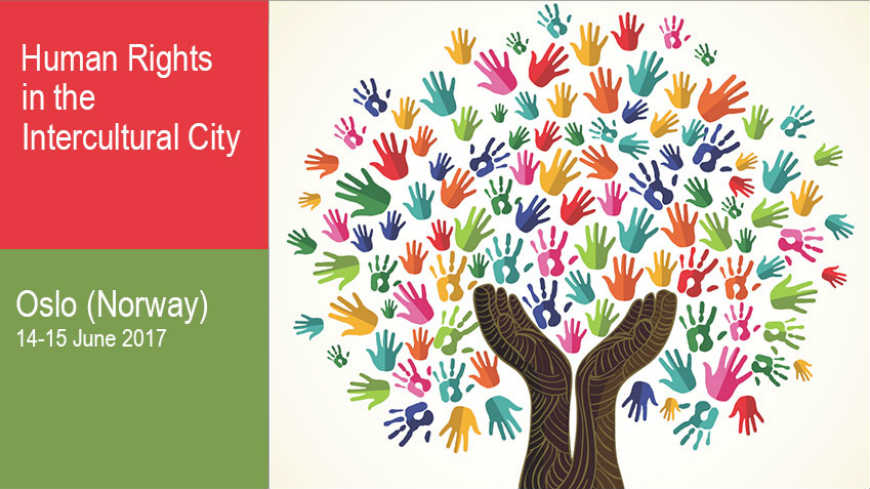On 14-15 June 2017, the Intercultural Cities Programme organised, with Oslo, a seminar on “Human rights in the intercultural city”. One of its aims was to showcase examples of intercultural and human-rights policies implemented by European cities. Barcelona´s “City of Rights Programme”, the “OXLO – Oslo Extra Large” charter and the “Vienna – Human Rights City” declaration are good examples. The seminar explored the links between human-rights based public policies and interculturality to develop specific lines of action, such as human rights education for municipal staff, anti-discrimination offices and equal access to municipal services. Guaranteeing human rights for migrants is one of the biggest challenges for most host cities; however, it is a challenge which they must meet if they want to build cohesive local societies, based on a frame of rights and responsibilities for all. This is why the cities engaged in the Intercultural Cities programme promote the idea of the “right to the city”, in order to provide equal opportunities to all city residents irrespective of their administrative status; access to rights should not, as a result, be dependent on nationality and legal residence. Participants in the seminar included, in addition to local authorities, representatives of civil-society organisations active in the field of freedom of religion and thought, gender equality, LGBTI rights and anti-discrimination; this is natural since the intercultural integration paradigm is based on human rights (including the right to equality and non-discrimination), justice, participation, inclusion, and cultural symmetry.
Newsletter - September 2017
Newsletter summary
- Diaspora policies, cooperation with the EU and immigration detention of children
- PACE launches parliamentary network on diaspora policies in Lisbon
- Commissioner publishes report on Slovenia and Human Rights Comment on Afrophobia
- Migrant integration via sport platform
- Human rights in the intercultural city



